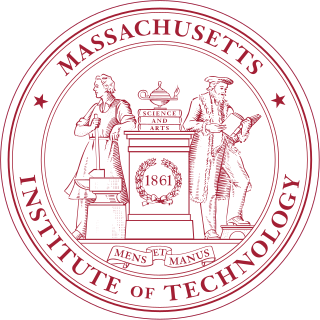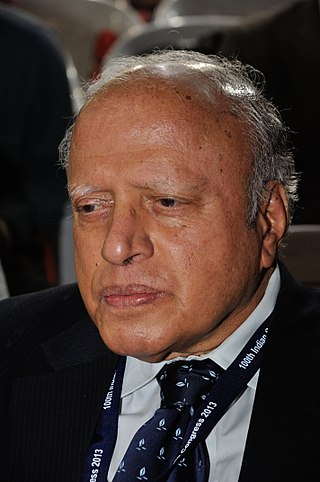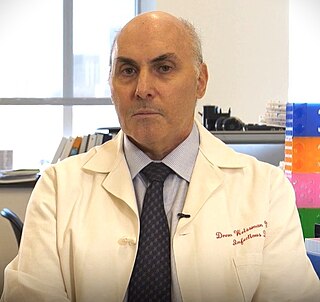
Artificial intelligence (AI) is the intelligence of machines or software, as opposed to the intelligence of humans or animals. It is also the field of study in computer science that develops and studies intelligent machines. "AI" may also refer to the machines themselves.

Central Asia is a subregion of Asia that stretches from the Caspian Sea in the southwest and Eastern Europe in the northwest to Western China and Mongolia in the east, and from Afghanistan and Iran in the south to Russia in the north. It includes the former Soviet republics of Kazakhstan, Kyrgyzstan, Tajikistan, Turkmenistan, and Uzbekistan. Central Asian nations are colloquially referred to as the "-stans" as the countries all have names ending with the Persian suffix "-stan", meaning "land of".

The Massachusetts Institute of Technology (MIT) is a private land-grant research university in Cambridge, Massachusetts. Established in 1861, MIT has played a significant role in the development of many areas of modern technology and science.

Muslims are people who adhere to Islam, a monotheistic religion belonging to the Abrahamic tradition. They consider the Quran, the foundational religious text of Islam, to be the verbatim word of the God of Abraham as it was revealed to Muhammad, the main Islamic prophet. The majority of Muslims also follow the teachings and practices of Muhammad (sunnah) as recorded in traditional accounts (hadith).
Psychology is the study of mind and behavior in humans and non-humans. Psychology includes the study of conscious and unconscious phenomena, including feelings and thoughts. It is an academic discipline of immense scope, crossing the boundaries between the natural and social sciences. Psychologists seek an understanding of the emergent properties of brains, linking the discipline to neuroscience. As social scientists, psychologists aim to understand the behavior of individuals and groups.

Physics is the natural science of matter, involving the study of matter, its fundamental constituents, its motion and behavior through space and time, and the related entities of energy and force. Physics is one of the most fundamental scientific disciplines, with its main goal being to understand how the universe behaves. A scientist who specializes in the field of physics is called a physicist.
Political science is the scientific study of politics. It is a social science dealing with systems of governance and power, and the analysis of political activities, political thought, political behavior, and associated constitutions and laws.

Research is "creative and systematic work undertaken to increase the stock of knowledge". It involves the collection, organization and analysis of evidence to increase understanding of a topic, characterized by a particular attentiveness to controlling sources of bias and error. These activities are characterized by accounting and controlling for biases. A research project may be an expansion of past work in the field. To test the validity of instruments, procedures, or experiments, research may replicate elements of prior projects or the project as a whole.

Science is a rigorous, systematic endeavor that builds and organizes knowledge in the form of testable explanations and predictions about the world. Modern science is typically divided into three major branches: natural sciences, which study the physical world; the social sciences, which study individuals and societies; and the formal sciences, which study formal systems, governed by axioms and rules. There is disagreement whether the formal sciences are science disciplines, because they do not rely on empirical evidence. Applied sciences are disciplines that use scientific knowledge for practical purposes, such as in engineering and medicine.

Social science is one of the branches of science, devoted to the study of societies and the relationships among individuals within those societies. The term was formerly used to refer to the field of sociology, the original "science of society", established in the 19th century. In addition to sociology, it now encompasses a wide array of academic disciplines, including anthropology, archaeology, economics, human geography, linguistics, management science, communication science and political science.

The National Institutes of Health, commonly referred to as NIH, is the primary agency of the United States government responsible for biomedical and public health research. It was founded in the late 1880s and is now part of the United States Department of Health and Human Services. Many NIH facilities are located in Bethesda, Maryland, and other nearby suburbs of the Washington metropolitan area, with other primary facilities in the Research Triangle Park in North Carolina and smaller satellite facilities located around the United States. The NIH conducts its own scientific research through the NIH Intramural Research Program (IRP) and provides major biomedical research funding to non-NIH research facilities through its Extramural Research Program.

Marketing is the process of identifying customers and "creating, communicating, delivering, and exchanging" goods and services for the satisfaction and retention of those customers. It is one of the primary components of business management and commerce.

Postgraduate education, graduate education, or grad school consists of academic or professional degrees, certificates, diplomas, or other qualifications usually pursued by post-secondary students who have earned an undergraduate (bachelor's) degree.

A doctorate or doctoral degree is a postgraduate academic degree awarded by universities and some other educational institutions, derived from the ancient formalism licentia docendi.

A Master of Science is a master's degree in the field of science. In contrast to the Master of Arts degree, the Master of Science degree is typically granted for studies in sciences, engineering and medicine and is usually for programs that are more focused on scientific and mathematical subjects; however, different universities have different conventions and may also offer the degree for fields typically considered within the humanities and social sciences. While it ultimately depends upon the specific program, earning a Master of Science degree typically includes writing a thesis.

Mankombu Sambasivan Swaminathan was an Indian agronomist, agricultural scientist, plant geneticist, administrator, and humanitarian. Swaminathan was a global leader of the green revolution. He has been called the main architect of the green revolution in India for his leadership and role in introducing and further developing high-yielding varieties of wheat and rice. Swaminathan's collaborative scientific efforts with Norman Borlaug, spearheading a mass movement with farmers and other scientists and backed by public policies, saved India and Pakistan from certain famine-like conditions in the 1960s. His leadership as director general of the International Rice Research Institute (IRRI) in the Philippines was instrumental in his being awarded the first World Food Prize in 1987, recognized as one of the highest honours in the field of agriculture. The United Nations Environment Programme has called him "the Father of Economic Ecology".

Google Scholar is a freely accessible web search engine that indexes the full text or metadata of scholarly literature across an array of publishing formats and disciplines. Released in beta in November 2004, the Google Scholar index includes peer-reviewed online academic journals and books, conference papers, theses and dissertations, preprints, abstracts, technical reports, and other scholarly literature, including court opinions and patents.

A Doctor of Philosophy is the most common degree at the highest academic level, awarded following a course of study and research. The degree is abbreviated PhD, from the Latin Philosophiae Doctor, pronounced as three separate letters. The abbreviation DPhil, from the English 'Doctor of Philosophy', is used by a small number of British and Commonwealth universities, including Oxford, formerly York, and Sussex, as the abbreviation for degrees from those institutions. PhDs are awarded for programs across the whole breadth of academic fields. Because it is an earned research degree, those studying for a PhD are required to produce original research that expands the boundaries of knowledge, normally in the form of a dissertation, and defend their work before a panel of other experts in the field. The completion of a PhD is typically required for employment as a university professor, researcher, or scientist in many fields.

Katalin "Kati" Karikó is a Hungarian-American biochemist who specializes in ribonucleic acid (RNA)-mediated mechanisms, particularly in vitro-transcribed messenger RNA (mRNA) for protein replacement therapy. Karikó laid the scientific groundwork for mRNA vaccines, overcoming major obstacles and skepticism in the scientific community. Karikó received the Nobel Prize in Physiology or Medicine in 2023 for her work, along with American immunologist Drew Weissman.

Drew Weissman is an American physician and immunologist known for his contributions to RNA biology. Weissman is the inaugural Roberts Family Professor in Vaccine Research, director of the Penn Institute for RNA Innovation, and professor of medicine at the Perelman School of Medicine at the University of Pennsylvania (Penn).














